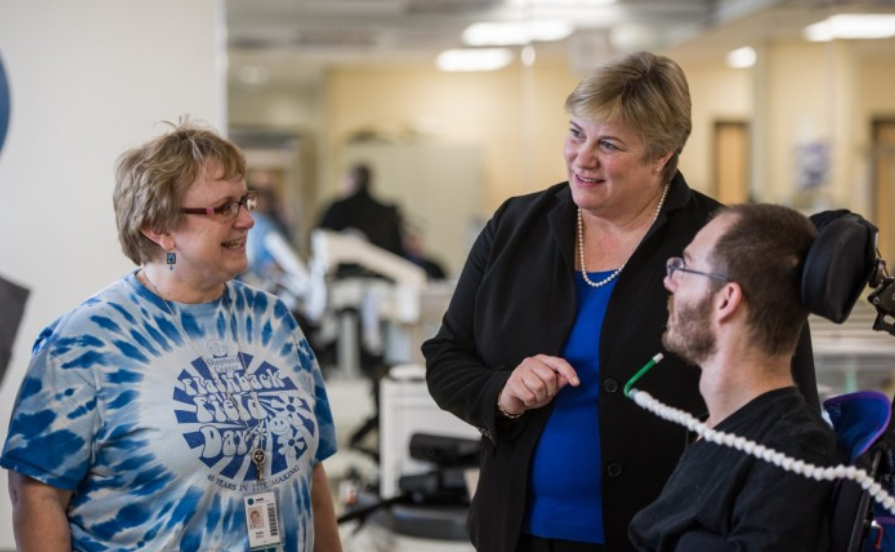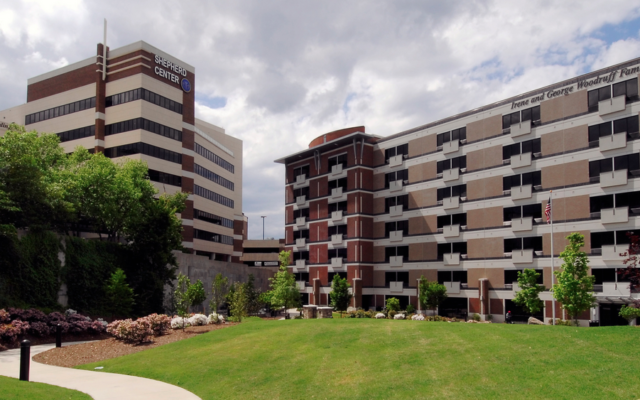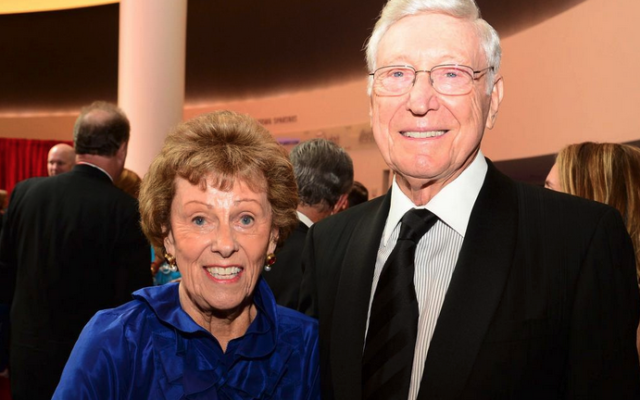Marcus Foundation Gives $80 Million to Shepherd Center
Billi and Bernie Marcus are longtime supporters of the work of the rehabilitation hospital.
The Marcus Foundation and Billi and Bernie Marcus have announced an $80 million grant to Atlanta’s Shepherd Center, believed the largest such donation since the hospital’s founding in 1975.
The Shepherd Center is one of few specialty hospitals in America that concentrates on patients with spinal cord injuries, brain injuries and other similar conditions.
According to Alana Shepherd, co-founder of the hospital and chairman of the board, the Marcus support for the Shepherd Center dates back to the early 1980s.
“Billi and Bernie believed in us from the beginning as we dreamed to do the impossible, establishing a specialized rehabilitation program following the catastrophic accident our son, James, experienced.”
The development of the center’s hospital complex on Peachtree Road has long impressed Bernie Marcus, one of the founders of The Home Depot corporation.
“Watching Alana and her family nurture the organization from an idea into the premier destination for neurorehabilitation has inspired my family and foundation to continue driving Shepherd Center’s mission forward.”
The AJT spoke with Sarah Morrison, CEO of the Shepherd Center, about the impact of the Marcus gift and the hospital’s plans for a five-year fundraising campaign.
Morrison: This campaign has three different legs to it. One is access. It is the ability to serve more people. The second leg is patient experience. And that’s where our family housing comes in and allowing families to be here throughout their loved one’s rehab.
We’re also going to have smart rooms in all of our patient rooms. So, for example, if somebody was paralyzed from the neck down, they can wheel into their patient room and be able to control their environment.
And then the third leg is the innovation. Right now, there’s not a cure for brain injury or spinal cord injury, but there are certainly technologies and programing that can help our patients become more independent and have them have a better recovery. And that’s in research. It’s innovation.

AJT: How is this gift going to have an impact on the military families that you serve, those military veterans who’ve been impacted by spinal injuries and other conditions?
Morrison: Our SHARE Military Initiative was started in 2008 for post 9/11 servicemen and women that have a brain injury and post-traumatic stress disorder. It’s a 12-week program that really has given purpose back to the servicemen and women. And again, we just need to do more of it. We want to grow that. We want to double that. There’s a lot more servicemen and women that need our care and need our specialty treatment and protocols. We know what we do works because we have 100 percent success rate and that 100 percent of our more than 600 clients are still with us and are still productive.
AJT: What is the impact likely to be of this $80 million gift on the physical structure of the Shepherd Center?
Morrison: The biggest [impact] from a structural perspective is to be able to have us grow and be flexible well beyond 2025, when the Shepherd Center turns 50 years old. It will give us the ability to add more beds. It’ll give us the ability to grow some of our other programs like for multiple sclerosis. But again, the innovation goes along with that in enhancing our care, doing more of it and doing better with it.
This gift is going to be a catalyst that will absolutely transform how Shepherd cares for these individuals and how others care for these individuals. So we’re very, very excited. We’re also very excited about our flexibility and our future growth well beyond 2025.

AJT: What are you most proud of as the chief executive officer of Shepherd?
Morrison: We’re still very much a family-oriented organization where people really live by the mission of serving these catastrophically injured individuals. And you can feel that. You can feel how they’re recovering. You can feel the hope. If they come to Shepherd Center, we’ll get them as far as they possibly can go. And with a lot of these injuries, recovery can take years. And that’s why Shepherd has been so strategic in making sure that we have the full continuum of care. So it’s just really taking our winning formula of care, which is our culture, our clinical excellence, our innovation and our donations, and really integrating that all into what I’ll call our secret sauce and really achieving the high level of outcomes that we do. And with this gift and this fundraising campaign, we’re going to continue to escalate and enhance all of our programing.




comments